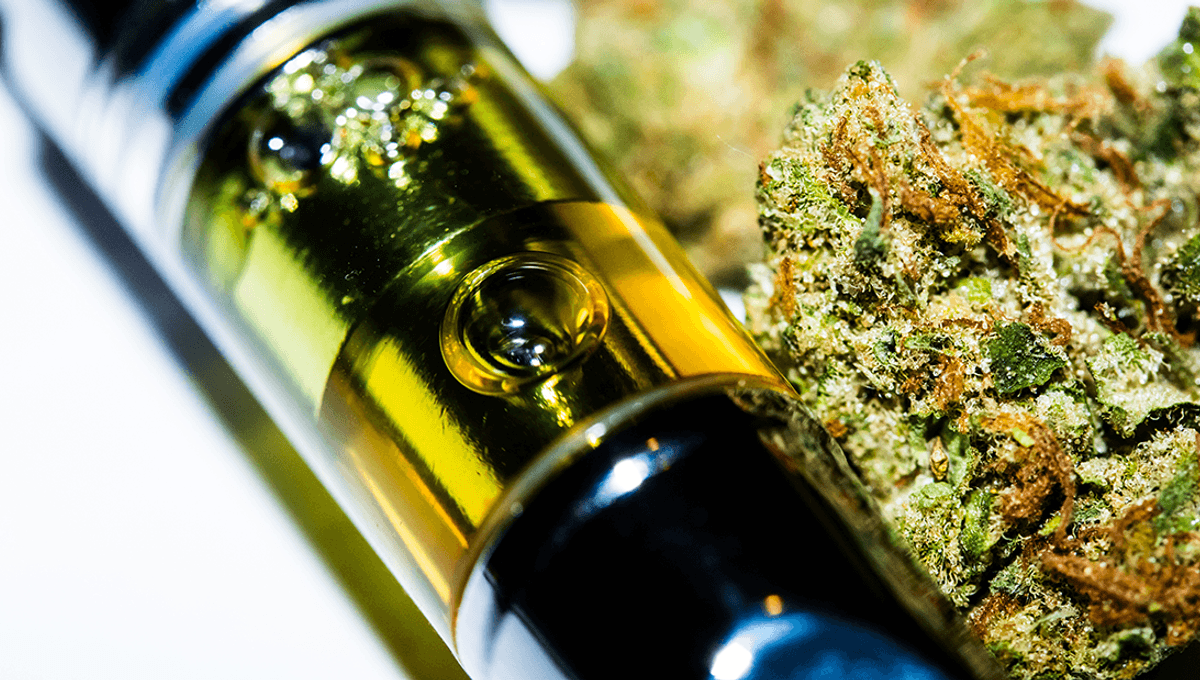
Cannabis is regularly found by studies to be the least risky recreational drug, and has not yet caused an overdose death that we know of. Now that that’s out of the way, let’s look at a time that researchers deliberately gave subjects a high dose of tetrahydrocannabinol (THC) to study its effects.
“Cannabis has been historically classified as a hallucinogen. However, subjective cannabis effects do not typically include hallucinogen-like effects,” the team explained in their study. They also note that hallucinogenic-like effects generally happened in volunteers who were given purified THC rather than whole-plant cannabis, and case reports involving hallucinations tend to occur in patients with a history of psychosis.
In this double-blind, placebo-controlled study, the team looked at the effects of large doses of vaporized THC on volunteers, and compared it to the effects of ingesting cannabis, psilocybin, and other hallucinogens.
In the cannabis portion of the study, volunteers smoked cannabis which contained either 0, 10, or 25 miligrams of THC, consumed within 10 minutes. In one volunteer, the focus of the paper due to the effects it had on him, the effects of this portion of the experiment were minimal and included cardiovascular effects as well as a bit of impairment on cognitive tests. However, when he took part in the fourth phase of the experiment – inhaling vaporized cannabis that contained 25 milligrams of THC, the effects were far stronger, and got progressively worse during the first 20 minutes after inhalation.
“He had difficulty responding to staff inquiries, was unable to complete self-report questionnaires, had difficulty keeping his head up, and appeared to periodically fall asleep or lose consciousness despite encouragement by research staff to stay awake and continue,” the team wrote, adding (probably unnecessarily) that he “was unable to maintain a balanced, steady gait when he walked.”
The volunteer, named H.C. in the paper, had trouble staying conscious, though his vital signs remained within normal ranges. For the next few hours, he remained in a state which wasn’t ideal for experimenters, given that he was unable to perform cognitive tests, and when he could talk it was largely to report that he felt nauseous and was experiencing pain and tingling in his limbs and neck. When he was more capable of communication, a full three hours after the initial dose, HC reported that he had experienced a number of strange hallucinogenic effects.
“He described visual distortions in the form of the environment and floor sinking away and the appearance of patterns moving on the carpet and chairs in the room,” the team wrote. “Additionally, he reported an ‘out-of-body’ experience characterized by the feeling of being removed from his body, existing above it in space, and feeling that his surroundings were sinking away from him, which was also accompanied by a feeling of paralysis.”
After another few hours and some lunch, these feelings of nausea and dissociation went away, and he was able to complete experiment questionnaires and cognitive tests. Though he reported large changes on the Intensity, Somaesthesia, Perception, and Volition subscales of the Hallucinogen Rating Scale (HRS), his experience differed from those on other hallucinogenic drugs on cognition and affect.
“Given that changes in affect and cognition are core features of experience with classic hallucinogens, it is difficult to attribute the reported case as an experience similar to that of a true classic hallucinogen,” the team wrote, noting that it was “curious” that he had not experienced the same effects when smoking whole cannabis with the same dose of THC. The team believes this could partly be put down to other components in cannabis, smoked or ingested at the same time as THC.
“This distinction is worth noting as it points to exogenous CB1 receptor agonism as a potential mechanism for inducing hallucinations,” the team wrote, “and also because it has been postulated that phytocannabinoids such as cannabidiol (CBD) or terpenoids that are present in the cannabis plant may mitigate some of the deleterious effects of THC.”
The study is published in Cannabis and Cannabinoid Research.
Source Link: Scientists Gave A Man An Acute Dose Of THC In The Lab. This Is What Happened